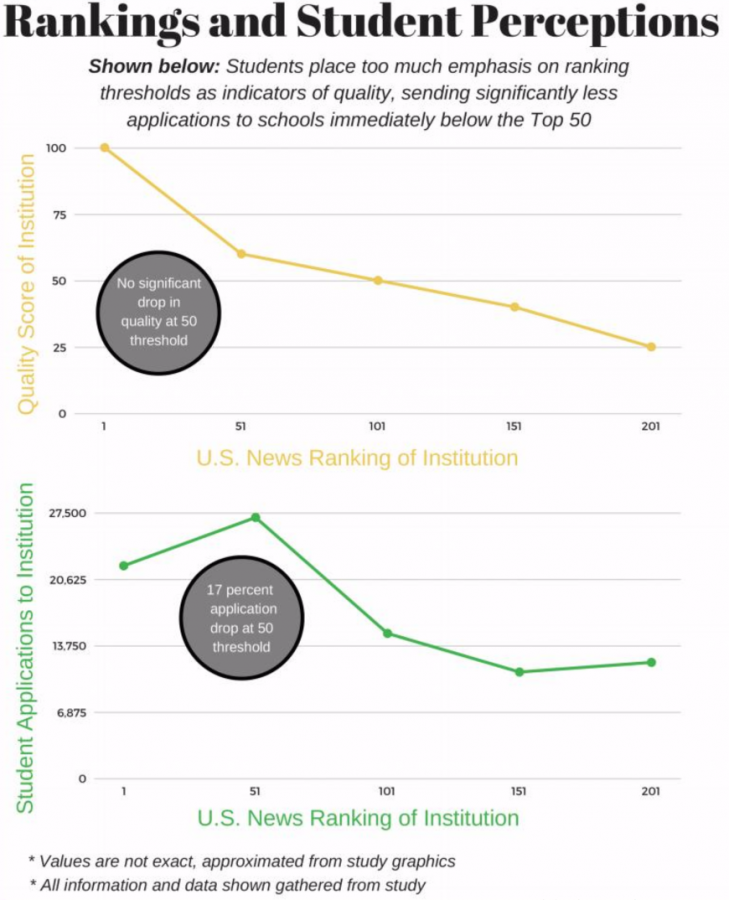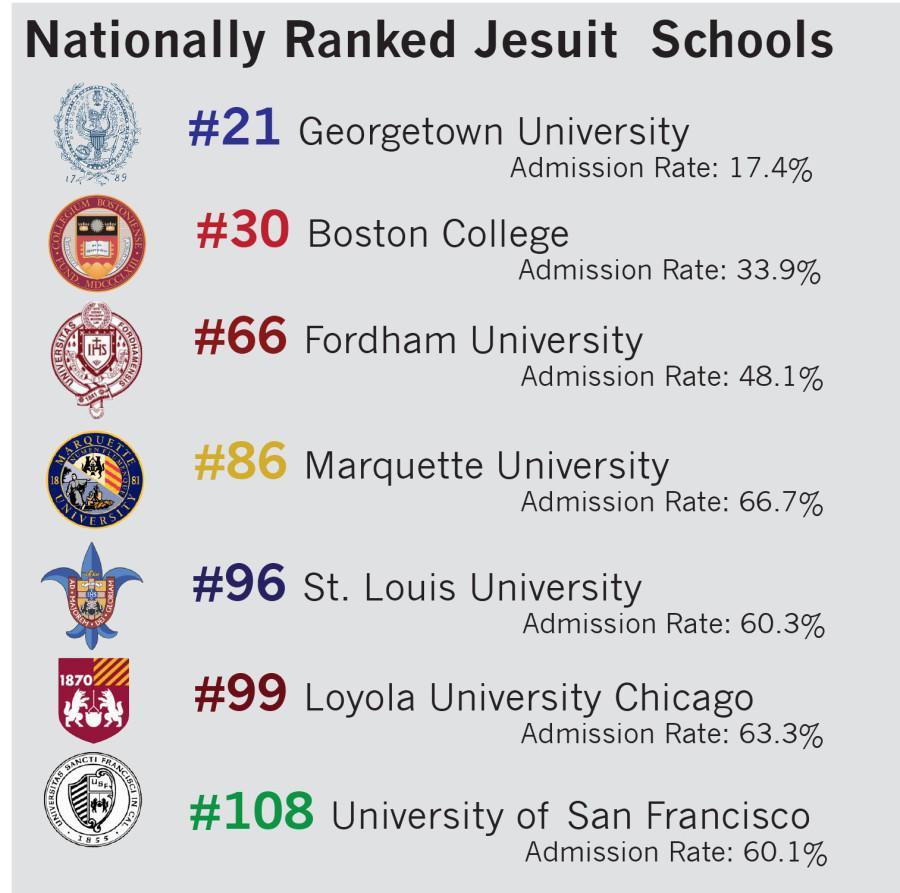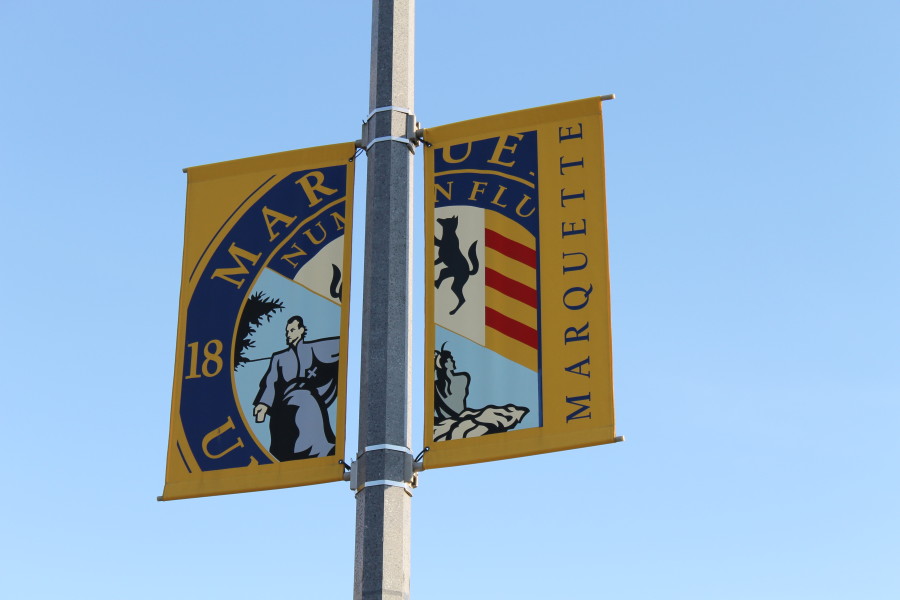A study published this month by two Marquette professors and one University of Idaho professor said students place too much emphasis on college rankings when making application decisions.
The study found 18.5 percent of full-time, first-year students say rankings in national magazines are ‘very important’ in their decision of which college to attend.
With these statistics in mind, the professors sought to prove whether students process ranking information accurately.
The study focused on the U.S. News & World Report college rankings for national universities and national liberal arts colleges, which are released each fall. The professors studied how these rankings affect students’ perceptions of educational institutions.
The two Marquette professors, Andrew G. Meyer and Andrew R. Hanson, from the economics department, and Daniel C. Hickman, economics professor from the University of Idaho, officially started working on the study in fall 2015, mostly collaborating over email and phone calls. The study took about two years to finish, which, Meyer said, is pretty quick for a given paper.
What the three professors found has implications for both students and educational institutions.
The findings suggest that there is a 2 to 6 percent decrease in applications when an institution’s ranking moves from inside the top 50 to outside the top 50. Despite this drop in applications, the study found no corresponding drop in the quality of institutions immediately above or below the 50 threshold.
In other words, rather than a large change in quality between an institution ranked 50 and an institution ranked 51, Meyer said students’ perceptions make the gap appear larger than it is.
“That tells us that students are focusing on the ranking as opposed to the information about quality that the ranking contains,” Meyer said.
Nikko Galanopulos, a sophomore in the College of Business Administration, said he thought rankings were important as a high school student.
“When I was a senior in high school, that was what I kind of used,” Galanopulos said. “But now that I’m here, it’s less so the number and more so what I’m actually doing here that’s going to get me a job.”
Meyer said students’ tendency to rely on these rankings is indicative of human decision-making behavior.
“There are places in economics research that are showing now that in many situations, people have limited attention spans,” he said. “There’s a lot of complex information that they have to try to process all at one time, so in these situations where people are faced with a lot of complex information, sometimes they look for simplifying rules of thumb.”
However, students’ emphasis on rankings could affect the quality of their college experience, Meyer said. Students who place too much importance on whether the schools they are applying for are in the top 25 or 50 might end up applying to schools in the 45 to 50 range and face higher competition, potentially causing them to receive less financial aid.
“By putting too much attention onto just that one ranking, they might not be getting the best match for themselves,” Meyer said. “Students may end up finding a better match for themselves by looking on the other side of the threshold — on 26, 27, 28 or 51, 52, 53 or 101, 102, 103.”
One reason students might place a lot of emphasis on the top 50 institutions could be due to the physical page break around that threshold in the U.S. News printed rankings. However, Meyer said the effect of the page break has decreased over time as technology use has increased, paving the way for future research.
“If you look at the online rankings, they don’t have the same cutoffs at 50,” he said. “But there might become other cutoffs that are important in the future, so you’d have to look at the rankings and see what are the natural breakpoints that come up when you look at the online rankings.”
Meyer said students should look beyond rankings when considering college options. While he said employers and graduate programs may look at rankings, students should not solely rely on rankings when decision day rolls around.
Isaiah Gencuski, a junior in the College of Communication, said he focused on financial aid over rankings. “It was more so a matter of tuition,” he said.
“I looked at the rankings of the program that I’m in, not Marquette’s in general,” Karis Yang, a sophomore in the College of Health Sciences, said.
In the U.S. News 2018 ranking of national universities, Marquette ranked 90. In 2016 and 2017, Marquette ranked 86.
“What Marquette would want to think about directly related to this study is that small changes in ranking can actually be relatively important if it crosses over some subjective threshold,” Meyer said. “Even though the ranking change might look really marginal — let’s say from a 98 to a 101 … it still could be important in the eyes of students.”







Annell Czyzon • Oct 26, 2017 at 3:22 pm
This was an excellent article, Sydney. Very proud of the work you are doing at Marquette. Keep up the good work! Love you, Grams